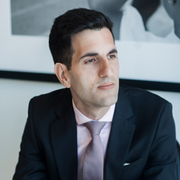
By Iqbal Jassat
‘Unchartered territory’ is how many mainstream Western media outlets have described the unprecedented political crisis that’s engulfed Benjamin Netanyahu’s rabid right-wing regime.
Overnight the protest movement that’s been brewing for weeks in opposition to his “judicial reforms”, brought the self-proclaimed Jewish state to its knees.
The escalation in protests which shut down the main airport, harbor, universities, businesses, shopping malls, and some ministries, has come as a rude shock to most of the settler-colonial apartheid regime’s allies and hard-core apologists.
The intensity of the crisis saw senior military officials including Yoav Gallant, the Defense Minister take a public stand against plans for the controversial judicial overhaul. Firing him added fuel to a raging fire.
“We’ve never been closer to falling apart. Our national security is at risk, our economy is crumbling, our foreign relations are at their lowest point ever, and we don’t know what to say to our children about their future in this country. We have been taken hostage by a bunch of extremists with no brakes and no boundaries,” is how former PM Yair Lapid described the crisis.
The “shock and awe” of America’s client-state falling apart, in whom the US has invested billions in arms and funds is reflected in back-to-back media coverage.
The Western narrative that internecine civil strife only happens in Syria, Yemen, and Libya – not in Israel, patronized as the “only democracy” in the Middle East, has been exposed as a racist construct.
The reality however is that Zionism as the political underpinning and ideological foundation which led to the dispossession of indigenous Palestinians to pave the way for the creation of Israel has failed.
The irony is that most, if not all, the formations who are at each other’s throats – from protesters to their opponents in the streets and in government – profess to be zionists.
The insults thus hurled at each other such as “anarchists” speaks to the huge divide between racists right-wing settlers and the so-called “left”.
Cynics argue that those perceived to be leftist opponents of the regime are in effect embedded in the status quo. They have yet to transcend their pro-democracy stance by acknowledging that the democratic values preserved for one ethnic group only is no democracy.
A cursory glance at South Africa’s apartheid-era “democracy” explains what Israeli “democracy” implies.
While America’s response to the protests has been largely muted, indications are that the Biden administration has been looking on with alarm. Notwithstanding the billions of dollars it provides in “aid”, the US lacks leverage for fear of treading on the toes of powerful pro-Zionist lobbies.
Having been out-boxed by China’s bold initiative to pave the way for Iran and Saudi Arabia to rekindle full diplomatic and economic ties, America’s strategy alongside Israel’s has been severely impaired.
Most of the region especially those Arab states who have opted to “normalize” ties on the basis of the “Abraham Accords” would be concerned about the end result of the turmoil. Their security which they hinged to Israel’s security is on a roller coaster ride.
As America’s influence wanes so too will they have to reconfigure their “normalisation” while at the same time weighing their options which include closing ranks with Syria.
Turkey faces a similar conundrum. It cannot pretend any longer that ties with Israel guarantee “protection” while observing the impending disaster unfolding in the Jewish state.
That Palestinian people continue to be hunted down and killed by settler-militias and by the regime’s armed forces, while protesters on the streets remain oblivious of these crimes, explains why the crisis faced by Israel is mainly about Israelis against themselves.
Palestinians remain subject to harsh restrictions, military checkpoints, arbitrary arrests, home demolitions and occupation. None of their grievances have featured in the protests, thus rendering them invisible, while their precious lives are on the line.
The only recourse they have in defending their lives and properties is to resist the occupation.
By all accounts, as much as the crises facing Israel are unprecedented in scale and numbers, it remains a selfish outpouring of anger directed against Netanyahu’s subjugation of the judiciary.
Though he has pushed the pause button, Netanyahu has already pushed through part of the bill which effectively strips the court of the power to declare a prime minister (himself) unfit for office. Though he denies any wrongdoing, it is known that Netanyahu is determined to push the “reforms” through due to his own ongoing corruption trial where he faces charges of fraud, bribery, and breach of trust.
Though Israel’s image has been severely damaged by its own racist right-wing extremists, and its macho power weakened at the same time, the core of Palestine’s freedom struggle to rid itself of the occupation has not altered.

Filed under: "Israel", China, Israeli Crimes crimes against humanity, Palestine, Palestinian people, South Africa, The Islamic Republic of Iran, USA | Tagged: Abraham Accords, Apartheid Israel, Benjamin Netanyahu, Defense Minister Yoav Gallant, Freedom of movement, Home demolition, Justice for Palestine, KSA, Palestinian Freedom, Settlers Attacks, The protests in "Israeli", Yair Lapid | Comments Off on Israel’s Protests Ignore Palestine’s Quest for Freedom and Justice








